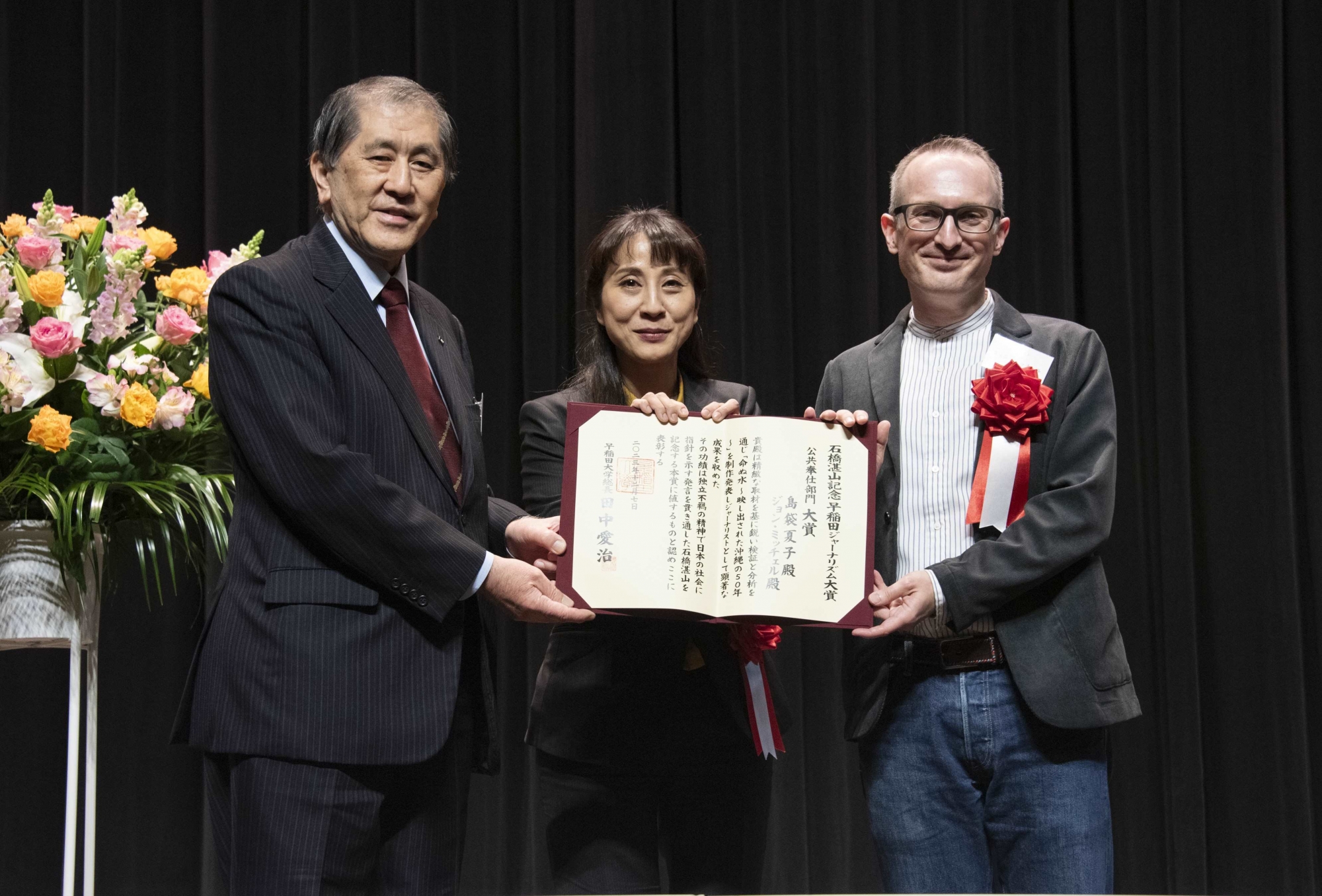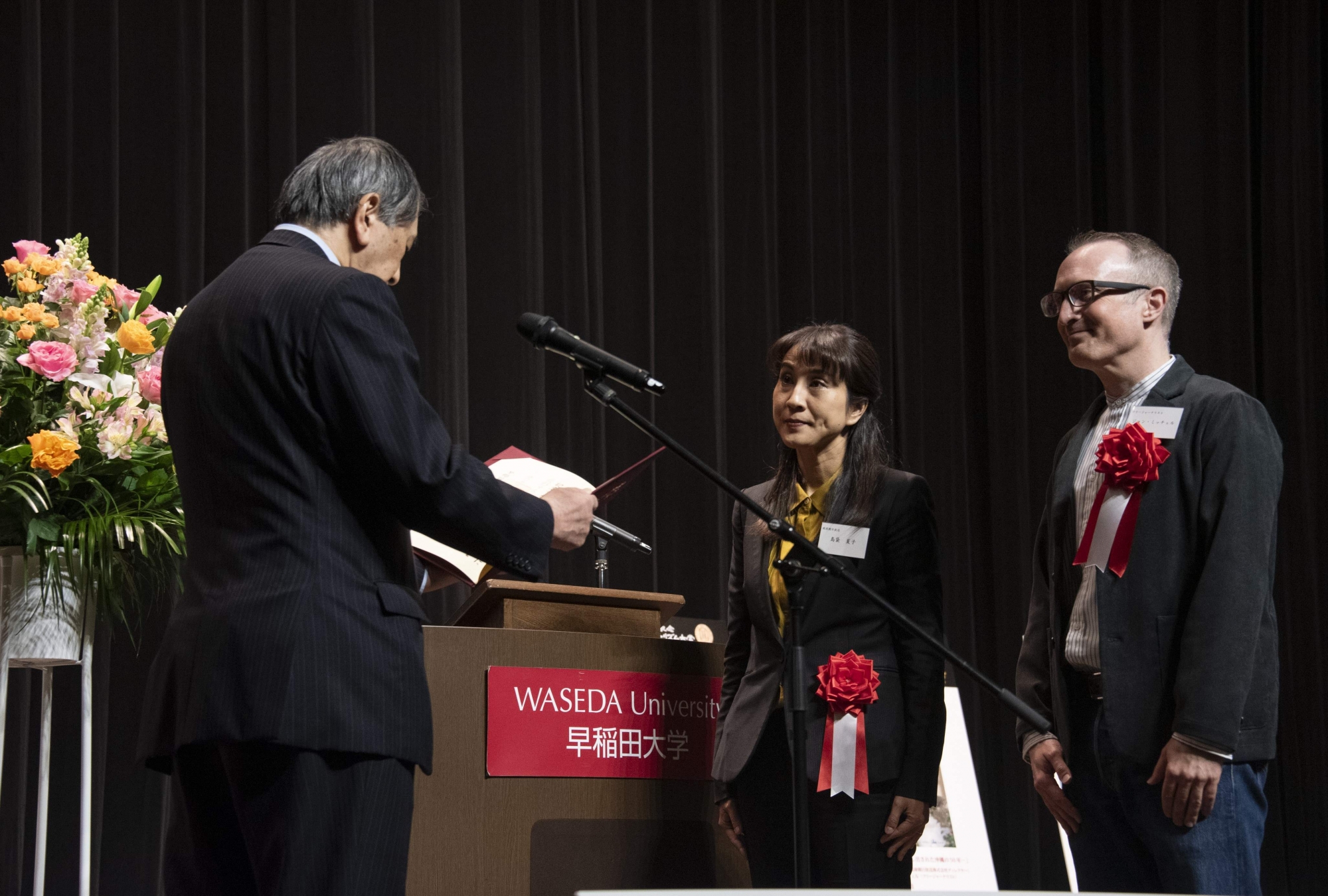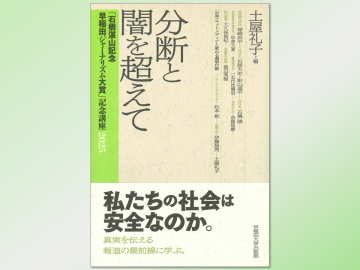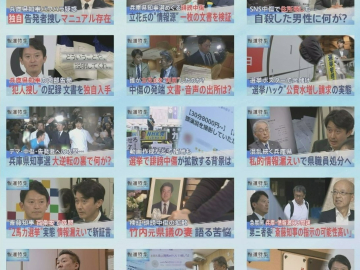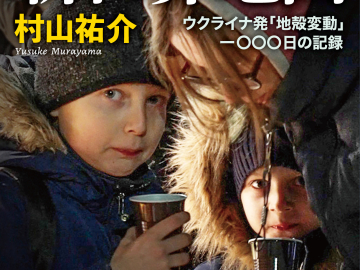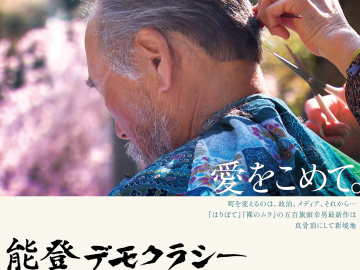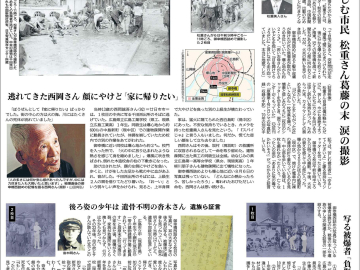【公共奉仕部門 大賞】
「命ぬ水 ~映し出された沖縄の50年~」
琉球朝日放送
ジョン・ミッチェル 氏、島袋 夏子 氏の挨拶
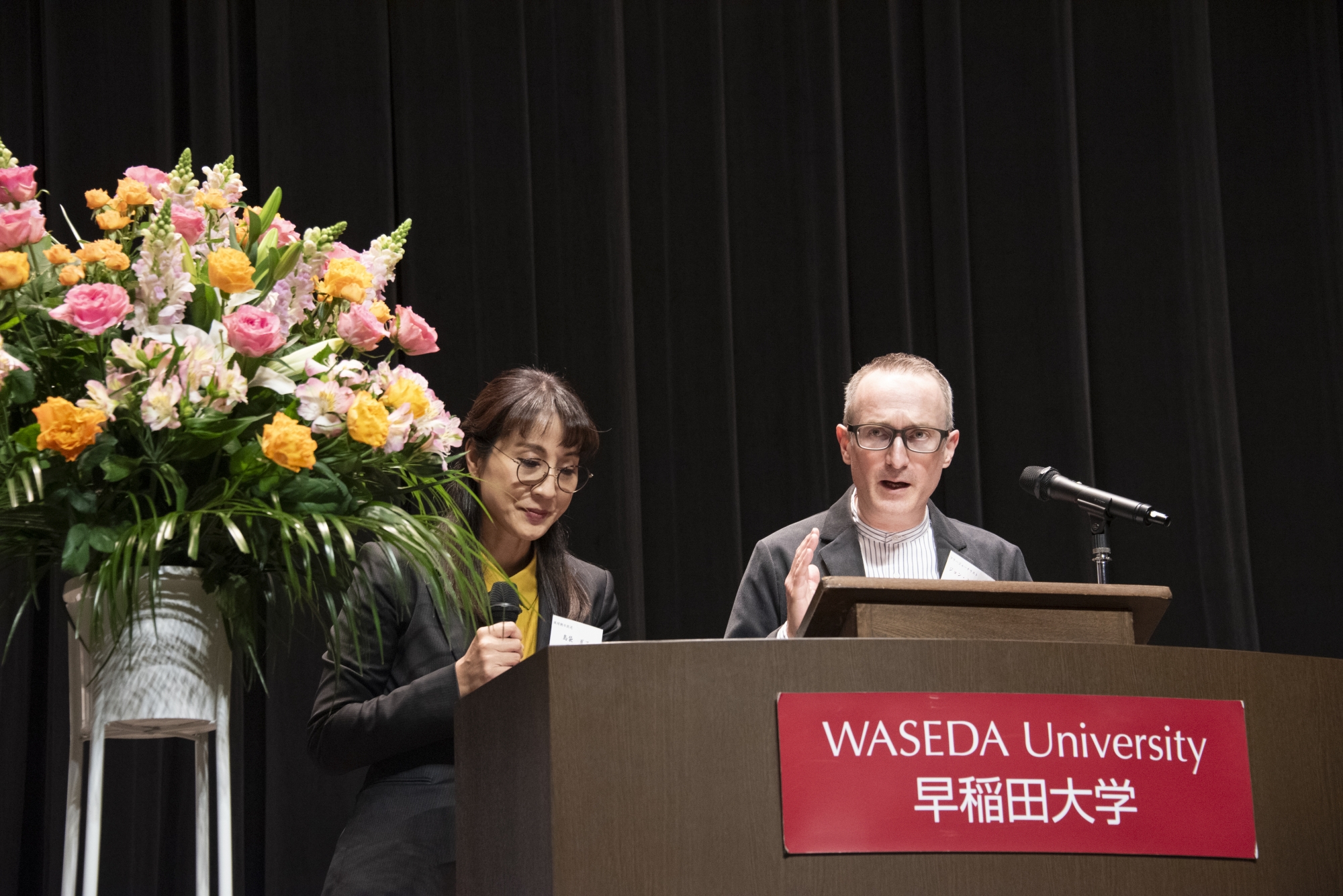
Good evening, everyone.
Please allow me to thank all of you for coming tonight and the judges for selecting our work, Nuchi nu Miji. It truly is a massive honour for Natsuko and I.
First, I’d like to thank some of those without whom Nuchi nu Miji would not have been possible. Matayoshi Ken, our cameraman, and Nojima Hajime, our producer. And also I thank the American military whistleblowers who provided us with inside information – at great personal and professional risk.
Natsuko and I have been working together for 12 years. Many people wonder why our collaborations have been so effective. The answer lies in geopolitics.
Natsuko is from Okinawa and I am from the country Wales. The similarities between the two regions are stark. Both used to be independent nations and both have suffered extensive mistreatment and discrimination. Because of this, residents have developed a strong desire to right injustices and make a better society.
For Natsuko and I, these geopolitical commonalities have consistently framed our reporting about what has been happening on Okinawa.
Very early during our making of Nuchi nu Miji, Natsuko and I realized an English version was essential to raise global awareness of this environmental catastrophe. In the spring, Harvard University brought Natsuko and I to the States to screen this English version. The audience reactions confirmed just how eager American people are to learn about Okinawa and try to resolve the ongoing legacies of US occupation.
Natsuko and I faced tall barriers during our investigation. But – as our documentary shows – we were able to overcome these barriers by drawing on the knowledge of very diverse groups.
On Okinawa, we worked with civic organizations and Iha Yoshiyasu. On mainland Japan, we drew upon the research of Harada Kouji and Koizumi Akio from Kyoto University.
Meanwhile, from the United States, we were supported by members of the authorities who responded to my hundreds of Freedom of Information Act requests – albeit sometimes reluctantly. The information I obtained had never before been made public.
I believe freedom of information is vital for a healthy democracy. It begets both transparency and accountability. In Japan today, these two principles are absent within current politics. Sadly, transparency and accountability do not receive enough respect by many in the mass media, too.
In contrast, I thank the judges for this award. It is a strong validation of our investigative journalism. I hope the collaborative model which I and Natsuko have created will inspire other journalists. More importantly, this award signals to people on Okinawa that, at least, some people here in mainland Japan recognize the disproportionate burden they bear.
As we say in the language of Wales, Diolch yn fawr iawn. Thank you very much.
日本語訳
今夜お越しいただいた皆さま、そして私たちの作品「命ぬ水」(ぬちぬみじ)を選んでくださった審査員の皆さまに感謝申し上げます。本当に光栄に感じています。
最初に、その存在なくしては、この番組を作れなかったであろう方々に感謝を伝えたいと思います。カメラマンの又吉謙さん、プロデューサーの野島基さん、そして職務上大きなリスクを冒して内部情報を提供してくれた内部告発者たちです。
私たちは12年間、共に取材してきました。なぜ私たちのコラボレーションが効果的なのか?多くの方々が疑問に思うことですが、その答えは地政学にあります。夏子さんは沖縄の出身、私はウェールズという国の出身です。この2つの地域は似ている点があります。両地域とも、かつて独立した国であり、不平等や差別にさらされてきました。だからこそ人々は、不正を正し、より良き社会を作ろうと強く願ってきました。私たちの地政学的な共通点は、沖縄で何が起きているのかについて、私たちの報道を一貫して組み立てています。
私たちはこの番組を作る早い段階で、過去にも経験がない環境問題に対する世界的認識を高めるためには、英語版が必要だと考えてきました。
春、ハーバード大学は、アメリカで上映会を開催するために協力してくれました。アメリカの聴衆の反応から、いかにアメリカの人々が沖縄について学びたい、アメリカ占領下から続く負の遺産を解決したいと願っているかがわかりました。
沖縄では市民グループ、中でも伊波義安さん、本土では京都大学の医学専門家である原田浩二先生、小泉昭夫先生の知識をお借りしました。一方でアメリカでは、私の何百もの情報公開の要求に対応したアメリカ政府の担当者が、私を支援してくれました。
情報の自由は、健全な民主主義にとって不可欠であると信じています。それは透明性と説明責任の両方をもたらします。今の日本では、この2つの原則が政治の世界で欠けています。悲しいことにマスメディアでも、それらが十分に尊重されていません。
そのような状況の中で、賞をくださった審査員の方々には感謝しています。これは私たちの調査報道に対する強力なサポートです。私たちが作り上げたコラボレーションモデルが、他のジャーナリストにインスピレーションを与えることを願っています。
一番重要なのは、この賞が本土の人たちの中にも、沖縄の人たちが不当な負担に耐えていることを認識している、という強いメッセージを送ってくれたことです。
ありがとうございました。
(島袋氏訳)
